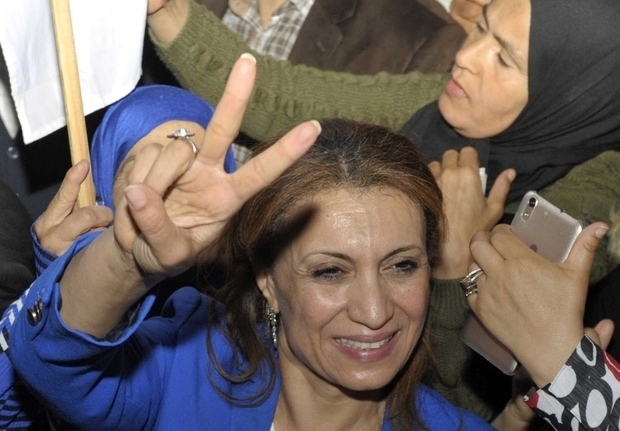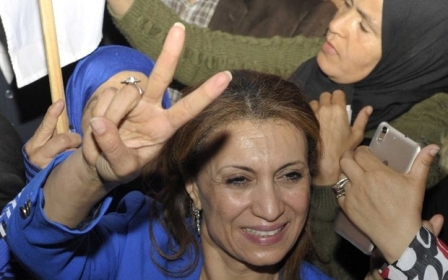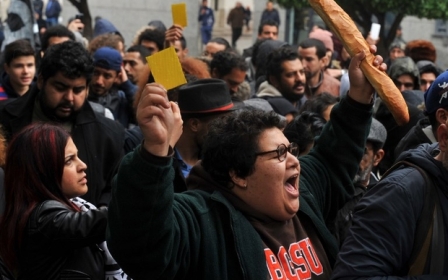Tunisia 'making history' as capital's first female mayor takes office

Souad Abderrahim was officially elected mayor of Tunis on Tuesday, making her the first woman to take the office in the Tunisian capital.
While Abderrahim, 53, won 33.8 percent of votes during municipal elections in early May, she still needed to secure the support of municipal councillors in order to take office.
In the vote on Tuesday, 26 municipal councillors backed her while her main adversary, Kamel Idir, a former local leader under long-time ruler Zine el-Abidine Ben Ali, and Nidaa Tounis party list head, received 22 votes.
'I consider this a source of pride for the Tunisian woman'
- Souad Abderrahim, next mayor of Tunis
Abderrahim, who heads a pharmaceutical company in Tunis, ran as an independent under the Ennahda party list, despite being a member of the party's politburo.
Ennahda, a traditionally conservative movement whose leaders describe themselves as “Muslim democrats”, won a 25 percent share of the vote and 21 out of 60 council seats in Tunis in the May elections.
Within Ennahda, Abderrahim has often been presented as a symbol of the party’s openness and embrace of modern values.
However, her candidacy has faced misogynistic objections, notably over the mayor of Tunis’ traditional title of sheikh, which, while having religious connotations, has no official religious responsibilities.
Making history
“We want to give the Tunisian woman her rights, the woman whose progressive image we’re always trying to sell,” she said during an interview on IFM radio station in May. “We’re always saying that the Tunisian woman is able to take on any job and that the Tunisian woman is an activist and is on the front lines.
“I consider this a source of pride for the Tunisian woman,” she added. “To become the first female sheikh of Tunis can only be recorded as Tunisia making history on this front.”
The municipal elections have been touted as a major milestone in Tunisia's transition to democracy after decades of authoritarian rule came to an end in the 2011 uprising that overthrew Ben Ali.
More than 57,000 candidates, half of them women and young people, ran for office in 350 municipalities, with more than 7,200 positions being contested.
Abderrahim herself rose to prominence in 2011 when she became an MP after running against 10 male candidates.
She first delved into politics while a student in the 1980s, as an activist with the Tunisian General Union of Students (UGTE) - dissolved by Ben Ali - landing her in prison for two weeks.
New MEE newsletter: Jerusalem Dispatch
Sign up to get the latest insights and analysis on Israel-Palestine, alongside Turkey Unpacked and other MEE newsletters
Middle East Eye delivers independent and unrivalled coverage and analysis of the Middle East, North Africa and beyond. To learn more about republishing this content and the associated fees, please fill out this form. More about MEE can be found here.




